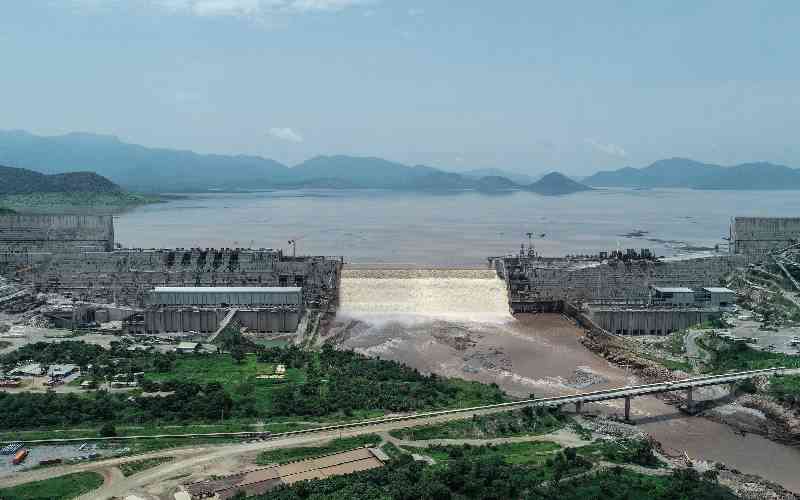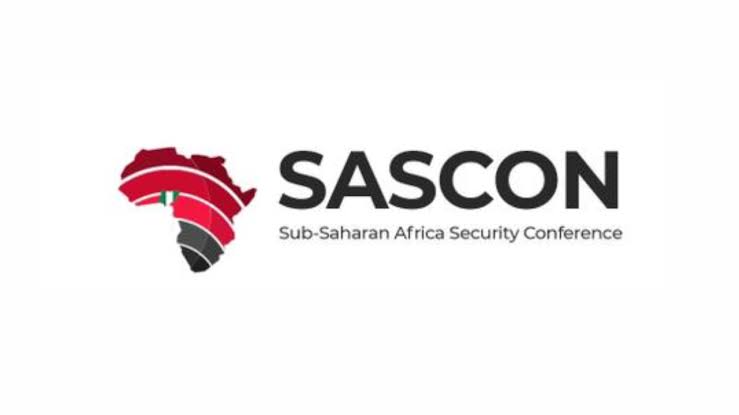GERD's Dual Impact: Ethiopia Unveils Blue Nile Depletion Amidst Eco-Tourism Vision

The Grand Ethiopian Renaissance Dam (GERD) stands as a monumental project with profound implications, not only for Ethiopia's national development and image but also for the broader hydrological and geopolitical landscape of the Nile Basin. Completed and slated for inauguration, the dam is poised to significantly transform Ethiopia's tourism and hospitality sectors, particularly in the Benishangul Gumuz Region, while simultaneously reshaping water dynamics and necessitating heightened regional cooperation.
For Ethiopia, GERD is emerging as a powerful economic catalyst. The Benishangul Gumuz Region, where the dam is located, is projected to see tourism become its second pillar of economic activity, following agriculture. The vast artificial lake, anticipated to span around 1,700 km² and feature over 70 islands, is envisioned as a unique ecotourism destination. This opens doors for diverse activities such as boat tours, bird watching, fishing trips, and appreciation of scenic landscapes. Opportunities abound for the development of floating resorts, lakeside lodges, and cultural tours that celebrate the rich heritage of local groups like the Berta, Gumuz, Mao, Komo, and Shinasha, with a feasibility study already proposing a floating resort project on the GERD lake. Beyond natural attractions, the dam's reservoir is fostering a new freshwater fishery, capable of supporting local restaurants, food tourism, and fish-related businesses. Ethiopia’s deep cultural connection to food, coupled with the unique, underexplored culinary traditions of the Benishangul-Gumuz region, presents an ideal scenario for food tourism, involving local communities in food preparation and storytelling. Agri-tourism is another promising avenue, allowing visitors to explore lakeside farms, engage in harvesting local produce, and participate in farm-to-table experiences, further enhancing the region's appeal.
The region has already demonstrated growth in tourism, hosting 40,600 tourists in 2022/23 and generating over 103 million Birr. Investments are underway to capitalize on this potential, with 69,000 hectares earmarked for tourism, hospitality, fish farming, and agriculture. Significant strides in infrastructure, including a bridge over the Blue Nile, upgraded roads, and an expanding Asosa Airport, have improved connectivity. To maximize these benefits, strategies include water-based tourism spots, island eco-lodge resorts, integrated lakefront resort zones, and digital guide applications. The Bishangari Eco lodge in Ethiopia serves as a model for integrating tourism with social and environmental goals, providing employment, local markets, and promoting sustainable practices.
However, GERD's completion has also had a tangible impact on the Blue Nile downstream. Reports indicate unprecedented water recession in Sudan, disrupting the annual flood season typically observed between July and October. Ethiopia’s Minister of Water and Energy has affirmed the dam's completion and insisted it is a “tool for cooperation,” rather than conflict, a stance echoed by Prime Minister Abiy Ahmed, who maintains that the dam has not negatively affected Egypt’s Aswan Dam. The dam, with a storage capacity of 74 billion cubic meters, regulates flows through 13 turbines to generate electricity, having initiated its filling process five years ago and now nearing its maximum capacity.
According to infrastructure and water resources expert Abubakr Mohamed Mustafa Fadlallah, Sudan benefits from GERD's regulation. Instead of violent seasonal surges, water flows are distributed evenly across the year, enhancing irrigation in areas like El Gezira, improving agricultural cycles, providing cheaper electricity, and reducing the risk of destructive floods. He also highlights GERD's superior storage capacity compared to Sudan's dams and its role in reducing silt by up to 50%, thereby improving the efficiency of downstream dams and irrigation systems. While Sudan and Ethiopia have maintained technical coordination and data-sharing for over two decades, Egypt remains in dispute with Ethiopia, accusing it of unilateral action and threatening its water security.
Despite the asserted benefits, other experts raise significant concerns. Sudanese researcher Ahmed Abdualah El Sheikh warns of heightened risks during exceptional floods, where sudden gate openings could cause catastrophic downstream flooding. He also points out that Sudan's northern deserts rely on annual floods to deposit fertile silt, and without this renewal, fertility could decline, accelerating desertification. Dr. Ahmed El Mufti, an international water expert, describes GERD as a “water bomb” if it were to collapse and cautions against Ethiopia potentially using the dam for political leverage, particularly given that the 2015 Declaration of Principles does not oblige Ethiopia to compensate for damages. These experts emphasize that without a binding legal framework, irrigated agriculture along the Blue Nile remains vulnerable.
The longevity and success of GERD, both as an energy source and a tourism hub, hinge on robust infrastructure, environmental conservation, and collaborative governance. Critical requirements include strong access roads, boat facilities, hospitality services, and a focus on protecting the dam from siltation, which poses a significant risk due to increased sediment yields upstream. Community-based participatory watershed protection programs are crucial for managing this. Furthermore, investments in supportive infrastructure, engaging local communities in planning and benefit-sharing, strengthening peace frameworks, securing funding, and building tourism awareness and capacity are vital. The adoption of smart infrastructure models, such as Africa's first all-optical government office at the GERD site, exemplifies Ethiopia’s commitment to modern development.
Ultimately, the consensus among many water affairs experts, like Saleh Hamad Omer, is that cooperation among Nile Basin countries is not optional but essential. Water, increasingly a political commodity, demands joint management to mitigate conflicts and ensure sustainable development for all riparian states. GERD stands as a symbol of Ethiopia's national pride and a testament to its development aspirations, simultaneously presenting an opportunity to foster regional cooperation and shared prosperity if managed through comprehensive, binding agreements.
Recommended Articles
Ethiopia's Gigantic Dam Unlocks New Era for Nile Basin & Eco-Tourism Potential

The Grand Ethiopian Renaissance Dam (GERD) is poised to become a major driver of tourism and economic growth in Ethiopia...
Ethiopia's Grand Dam Unlocks Eco-Tourism Potential Amidst Blue Nile Concerns

Ethiopia's Grand Ethiopian Renaissance Dam (GERD), now completed and slated for inauguration, is set to significantly bo...
Nigeria & Ethiopia Forge Alliance: Unleashing African Tourism and Trade Potential!

A new partnership between Finchglow Holidays, Ethiopian Airlines, and Ethiopian Holidays aims to boost tourism and trade...
Ethiopia's Megadam: Energy Revolution Sparks Economic Boost, Diplomatic Crisis

Ethiopia's Grand Renaissance Dam, Africa's largest hydroelectric project, promises an "energy revolution" for the nation...
Lagos to Host Critical Summit: Security Leaders Unite Against Insecurity & Terrorism

The Sub-Saharan Africa Security Conference (SASCON 2025) is set to take place in Lagos, Nigeria, from July 22-23, 2025. ...
You may also like...
F1 Shocker! Red Bull Star Stripped of Italian Grand Prix Victory After Dramatic Race Blunder

The Italian Grand Prix at Monza delivered a mix of record-breaking triumphs and dramatic incidents. Max Verstappen secur...
Chaos Erupts! Serbia vs England Match Marred by Fan Fights, Lasers, and Stadium Incidents

England's commanding 5-0 victory over Serbia in a World Cup qualifier was overshadowed by numerous crowd disturbances, i...
Hollywood Legend Michael Caine, 92, Ends Retirement for Vin Diesel's Action Sequel

Veteran actor Sir Michael Caine, aged 92, is set to come out of retirement to star alongside Vin Diesel in a sequel to “...
Charlie Sheen's Shocking Netflix Doc Explores Wild Revelations & Comeback Hopes

Charlie Sheen's new two-part Netflix documentary, “aka Charlie Sheen,” chronicles his tumultuous life, from his rise to ...
MTV VMAs 2025 Shocker: Tyla's Historic Win, Full List of Winners, Performers & Presenters Unveiled!

The 2025 MTV Video Music Awards crowned Lady Gaga as the night's big winner, taking home multiple trophies including Art...
Holy Ten's War with Mnangagwa's Son Ignites: Death Dares and Terrorist Accusations Unleashed

Zimbabwean hip-hop artist Holy Ten has launched a scathing attack on President Emmerson Mnangagwa's sons, Collins and Se...
Scandal Erupts: Alexander Brothers Face Mounting Assault Allegations

The Alexander brothers, luxury real estate moguls, face sex trafficking and sexual assault charges from over 60 alleged ...
Rock Legends Unite: Oasis Reunion Tour Ignites Legal Battles and Fan Frenzy!

The iconic band Oasis has reunited for a highly anticipated world tour in 2025, bringing original members back together ...